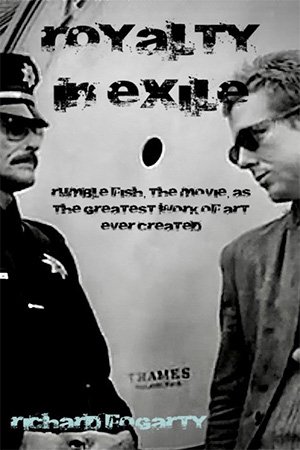Richard Fogarty | 2020 | ASIN: B08CD7PYCL | English | 408 pages | ePUB, AZW3 | 12 MB
This is a book about a work of art, which happens to be a movie called 'Rumble Fish', directed by Francis Ford Coppola in 1982, ignominiously pulled from cinemas after two weeks, and consigned, tragically and incredibly, to the memory hole. This work of art happens to have gone unrecognised in its own time, as well as in ours, although it happens to be a deceptively superlative work, to the extent that the author of this book is able to make the surprising case for its consideration as the greatest work of art ever created.
This maverick argument is soundly preempted by a discussion of the specific criteria by which we can judge the merits of works of art, in order to apply these to the movie, with a full breakdown and analysis of scene and soundtrack details, character roles, imagery, meanings and symbolism, and an appraisal of critics' and audience responses. The most striking feature of all, however, in support of the thesis, is the unravelling of, and full accounting for, the ancient and undisclosed mythological subtext which permeates this work. This is also cross-referenced with the movie's most pertinent cinematic influences and sources, as well as a comparison with the book with which it originated, and its movie sibling, 'The Outsiders'.
The argument for 'Rumble Fish' is also an exploration of how such an outstanding work of art, while in full view, can have been so comprehensively ignored for so long, a dismissal which hinges upon societal norms and cultural preconceptions which conspire to confer a wilful blindness upon the audiences of both art and cinema. The fact, revealed here for the first time, that this movie cannot be fully categorised as belonging to either field, exposes the fault-lines in our pretences to having achieved any kind of visual literacy, an indictment which makes one's journey through this argument not only entertaining and enlightening, but also humbling.
DOWNLOAD





 Reply With Quote
Reply With Quote
